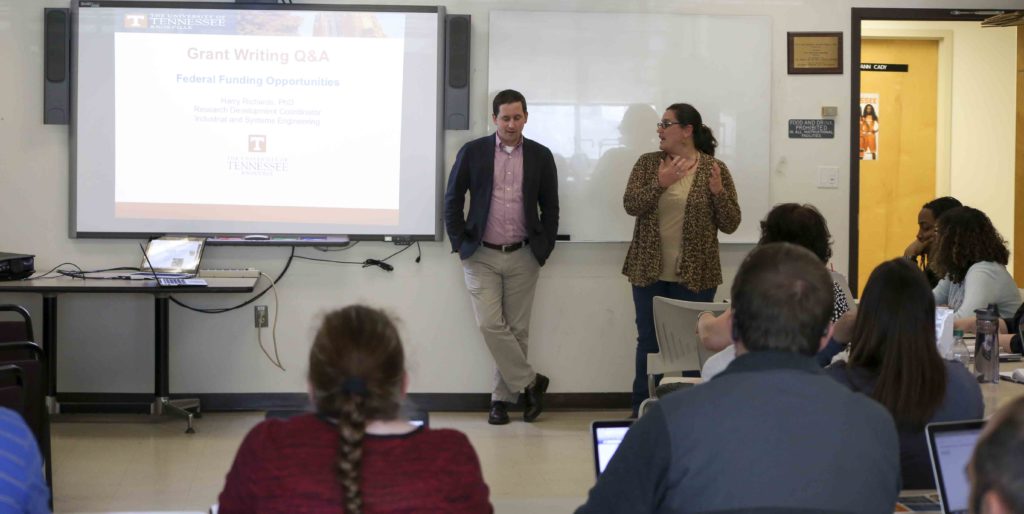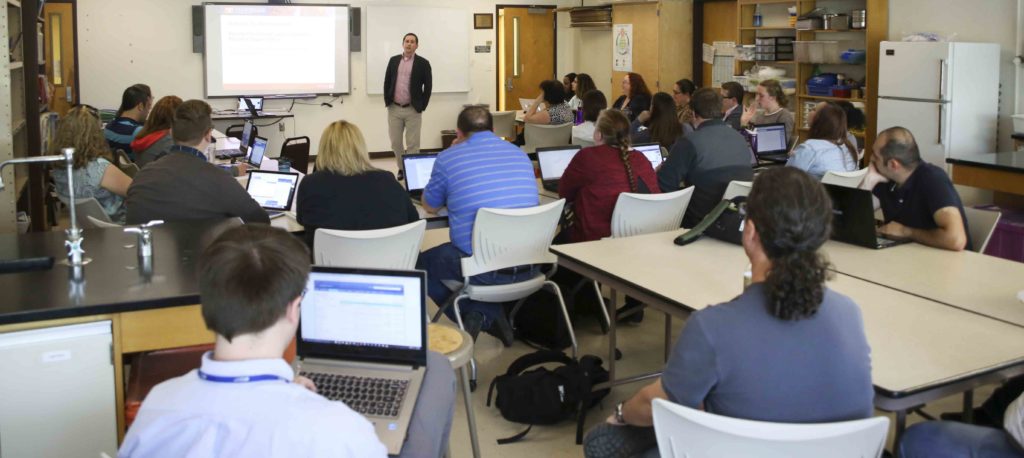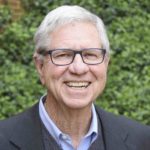The ESM Seminar, led by associate professor Jennifer Ann Morrow, hosted a Grant Writing Tips workshop on April 4th, 2016 that drew in more than twenty-five students and faculty members from six different departments at UT Knoxville and the UT Institute of Agriculture.
The Grant Writing Tips were presented by research assistant professor, Harold A. Richards, who works in the College of Engineering as a grants program coordinator. Morrow said, “We knew that Richards would provide excellent resources and his extensive experience in this area is why the students requested this workshop from him.”
“I had a great time interacting with the students and faculty, and I applaud Morrow for supporting her students’ curiosity. A successful research endeavor requires being familiar with how to fund the work and graduate school is an ideal time to begin learning about the process.” – Richards
On a usual night, the ESM Seminar consists of six students and three faculty members. But, they decided to open this specific class meeting to the department and beyond. Morrow explained, “We wanted to open it up to all of EPC, because there are many students and new faculty that have minimal experience with grant writing and we thought this would be beneficial to them.”
The workshop was highly attended and well received. Richards gave a power-point presentation styled as a Q&A. Richards said, “I was happy to share my own experiences and excited by the numerous and thoughtful questions. It is my hope that the seminar provided context and scope so that students can expand their knowledge and awareness in ways that fit their own interests and needs.”
“I was impressed by the turnout and the questions asked by the audience were relevant and showed to me that this is an area that we really need additional education for our students.”
You can see more photos from the event in our Class Happenings 2016 photo album on the EPC Facebook page.


